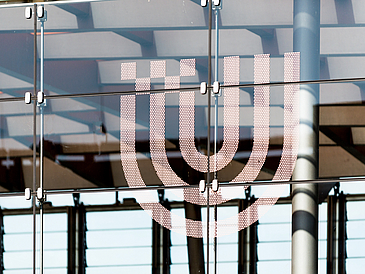The impact of the COVID-19 pandemic on the economy and society is currently far greater than that of the global financial and economic crisis of 2008/2009. Given the global supply and demand crisis, the economic consequences of the COVID-19 pandemic are difficult to contain with economic stimulus packages.
In a joint study, Bremen economists analyze the consequences for the Bremen State. The study focuses on the effects of the COVID-19 crisis on innovation policy and structural change in the Hanseatic city. The contributions are divided into four key areas: innovation and startups, urban development and sustainable innovations, economic and financial aspects, as well as global markets and value chains.
Innovation and Startups
The COVID-19 pandemic has led to a situation of uncertainty with regard to job security, income, health, and the overall economy. During the pandemic, innovation is no longer primarily associated with economic growth, but rather accentuates digitalization, artificial intelligence, and climate neutrality. Startups are critically confronted with the loss of turnover, human capital, and startup ecosystems.
Urban Development and Sustainable Innovations
The current development promotes a model of a city with a diverse mix of uses and functions. Regionalization and digitalization are crucial factors for the reintegration of businesses and employment in the Bremen area. Due to the sharp drop in demand for local public transport, innovations are needed to ensure the long-term competitiveness of public transport, for example, through the use of green hydrogen.
Economic and Financial Aspects
Long-term public credits are indispensable for coping with the economic consequences of the pandemic. The innovative “Bremen Fund” must not be used only in the context of an ad hoc policy, but should also strengthen social stability and ecological sustainability. A subsequent repayment plan should also include proposals for a capital levy.
Global Markets and Value Chains
Bremen’s ports are strongly affected by the decline in the global goods trade. The COVID-19 crisis is acting as a catalyst for structural change. The changes in value chains could accelerate the restructuring of Bremen’s port industry, which would require a rethinking of Bremen’s economic policy.
The study was coordinated and published by Jutta Günther (University of Bremen) and Jan Wedemeier (HWWI). “When we conceived the study, we had no idea how quickly the pandemic situation would intensify. The continuously required aid programs for companies must cushion hardships and promote future-oriented investments,” says Jutta Günther, who is professor of economics at the University of Bremen and researches on innovation and structural change.
“The overall economic situation in Germany, which had just started a slight recovery, will remain fragile due to the COVID-19 crisis. The instruments suggested by the study show not only possible solutions for an accelerated transformation, but also possible ways of reacting to the new development”, says Jan Wedemeier, head of the research area Economics of Cities and Regions and managing director of the Bremen branch HWWI sponsor group.
Further Information:
The study “Structural Change through COVID-19: Implications for Innovation Policy in the Bremen State” can be downloaded at:
https://www.hwwi.org/fileadmin/hwwi/Publikationen/Policy/2020/HWWI_Policy_Paper_128.pdf. (in German)
Contact:
Prof. Dr. Jutta Günther
University of Bremen
Faculty of Business Studies & Economics
Phone: +49 (0)421 218 666 30
Email: jutta.guentherprotect me ?!uni-bremenprotect me ?!.de
Dr. Jan Wedemeier
Hamburg Institute of International Economics (HWWI)
Fahrenheitstr. 1 | 28359 Bremen
Phone: +49 (0)421 2208-243
Email: wedemeierprotect me ?!hwwiprotect me ?!.org

